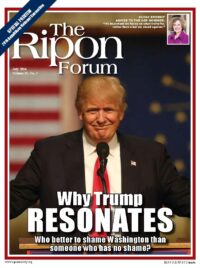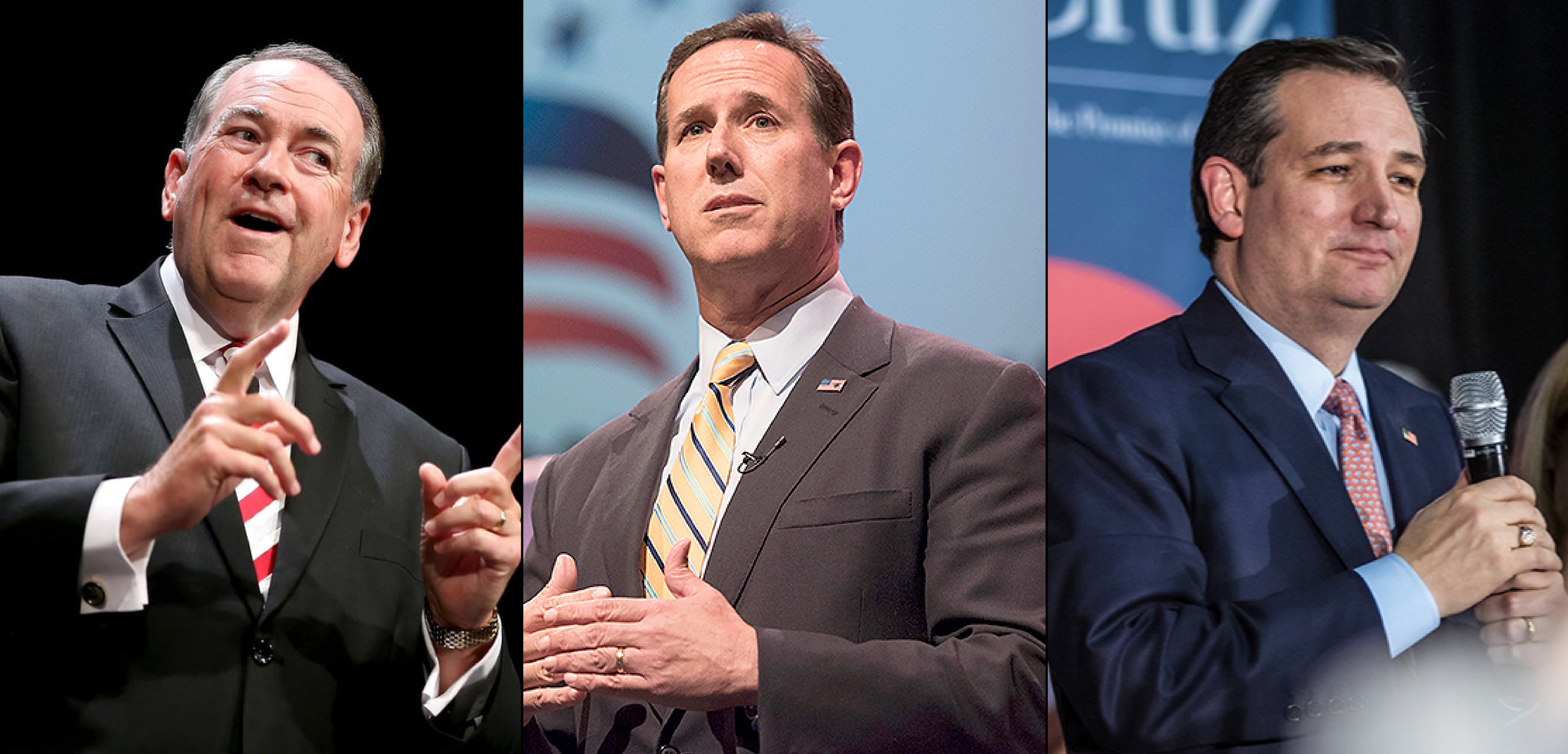In addition to officially selecting their Presidential nominee for 2016, Republicans attending this year’s convention in Cleveland will also be setting the rules that will govern the GOP nomination process in 2020.
For 40 years now, this process has started in Iowa. But given the inordinate amount of time and money that candidates spend in the Hawkeye State leading up to its first-in-the-nation contest, and given the fact that the winner of the Iowa Caucus is almost never the eventual GOP nominee, perhaps it is time to make a change.
After all, Iowa became first-in-the-nation not because of a grand political plan, but because of a fluke. The year was 1972. When national Democrats decided that year to democratize its presidential selection process with a nominee selected by voters, Iowa Democrats decided to use the state’s traditional caucus system to choose its delegates to the national convention, instead of the primary system most states implemented.
In order to get the national delegates selected in time for the summer convention, the Democrats had to hold their precinct caucuses in the preceding winter so that there was time to complete the subsequent county, district, and state conventions. Because Iowa’s process took so long, it had to be started long before other states.
Given the fact that the winner of the Iowa Caucus is almost never the eventual GOP nominee, perhaps it is time to make a change.
The 1972 Iowa Democratic presidential caucuses garnered unexpected media coverage when the then-relatively unknown Senator (and eventual nominee) George McGovern of South Dakota made an unexpectedly strong showing against then-front-runner Senator Ed Muskie of Maine.
Sensing a chance to share the first-in-the nation limelight, the Iowa GOP decided to copy the Democrats, and hold its own presidential caucuses in 1976. As a result of this series of historical curiosities, the nation now finds itself descending on Iowa every four years to begin the nation’s primary season. But why should Iowa continue to occupy first in the nation status 40 years later? At least from a Republican perspective, it should not. Iowa’s caucuses are simply lousy at predicting the Republican presidential nominee. Indeed, they aren’t even particularly adept at winnowing the field.
In fact, since the modern GOP presidential primary system debuted in 1976, there have been eight competitive Republican contests (1984, 1992, and 2004 all featured incumbent GOP Presidents with no meaningful challengers). In those eight nomination cycles, the Iowa winner went on to win the Republican nomination just three times. Put another way, Iowa’s GOP caucuses-goers picked the same candidate as the national party only 37.5% of the time.
How does this compare to other early states (defined as one of the first ten contests in a given primary season)? New Hampshire, home of the nation’s first primary, picked the eventual winner five out of eight times, a success rate of 62.5%. South Carolina has picked correctly six out of seven times — 86%. Other early states also have better track records. Wyoming, with five early contests, picked the winner 40% of the time. Nevada and Michigan, with four early contests apiece, have batted 50%. And Florida has correctly picked the ultimate Republican winner all four times it has held an early primary.
This track record is often excused by asserting the caucuses perform a winnowing function in the primary process, or, as the saying goes, “there are three tickets out of Iowa.” But even this rationale hardly withstands scrutiny. In the seven election cycles with four or more candidates, Iowa has picked the eventual top three contenders just twice — in 1988 and 2016, a 28.5% success rate.
Iowa’s most egregious failure to discern what the nation’s Republican voters considered presidential material came in 2000 and 2008, with the same candidate: Senator John McCain of Arizona. In 2000, McCain came in fifth place in Iowa’s caucus, with less than five percent of the vote (behind Alan Keyes and Gary Bauer). McCain went on to become George W. Bush’s only meaningful adversary that year, winning seven states. Eight years later, McCain came in fourth, behind Mike Huckabee, Mitt Romney, and Fred Thompson. Nonetheless, McCain became the GOP’s 2008 standard-bearer.
McCain’s problems in Iowa illustrate two key factors causing the state’s GOP electoral failures: ethanol and evangelicals.
After all, Iowa became first-in-the-nation not because of a grand political plan, but because of a fluke.
The federal government’s Renewable Fuels Standard (“RFS”) of ethanol (and to a lesser extent) biodiesel mandates accounts for $4.6 billion (3.5%) of Iowa’s GDP. The industry creates approximately 43,000 Iowan jobs, accounting for about 3% of the state’s total employment. The RFS also happens to be one of the worst public policies ever designed, harming consumers, agriculture, the poor, energy efficiency, and the environment. Absent the federal mandate, the industry would not exist. But, because Iowa is first, presidential contenders swear fealty to the RFS in order to maintain their political viability in Iowa’s caucus. To his credit, Senator McCain consistently opposed the mandate, rendering him persona non grata in Iowa politics, where he then barely campaigned.
While some may point to Senator Ted Cruz’s Iowa victory this year as proof that ethanol’s interest has waned, the opposite is true: Cruz was able to win with 28% of the vote only because there were eleven active candidates in the race. His next two closest competitors were pro-RFS candidates Donald Trump and Marco Rubio, who garnered nearly half the Iowa vote between them. Cruz and Rand Paul (the only other anti-ethanol candidate) received only 33% of the vote combined. In 2012, anti-RFS candidates got 37% of the vote; in 2008, 24%, and 5% in 2000. Cruz’s success came from his assiduous cultivation of social conservatives, and the fracturing of the 2/3 pro-ethanol vote among nine other candidates.
Which brings us to McCain’s second problem: Iowa Republicans are unrepresentative of the party at large. Forty percent of Iowa Republicans describe themselves as “Very Conservative” compared to 25-30% nationwide. While white evangelical Protestants are roughly 64% of Iowa’s Republican voters, they’re only about 35% of the GOP’s nationwide electorate. As Ted Cruz discovered this year, a Republican candidate who frames himself to win Iowa is unlikely to travel well in the rest of the country.
Finally, the caucus process itself discourages turnout by Iowa’s electorate. Unlike a primary, where voters have all day to cast their ballot, or even mail them in, caucuses require that everyone seeking representation show up at a set time and day. Iowans, however, must show up in person at 7:00 p.m. on a winter weekday night. Even though Iowa has twice as many eligible voters as New Hampshire, it has less than a third of the turnout. In 2016, 28% of eligible voters participated in the New Hampshire, compared to 8% for Iowa.
A couple of changes in the GOP’s rules would significantly ameliorate the problems created by Iowa’s caucuses. First, the national GOP’s delegate allocation rules should be keyed to each state’s Republican voter turnout. The current rules already provide bonus delegates for Republican presidential performance and electing Republican officials, as well as sanctions for states that violate timing and delegate allocation rules. The rules should also incentivize Republican voter turnout. If states wish to keep their caucus (or convention systems), that should be their prerogative, but the delegate allocation system should prioritize the system that best reflects the preferences of Republican voters: primaries.
Second, no state should have a sacrosanct position in the primary calendar. There is much to be said for letting the primary process begin in small, low population states in order to give candidates with smaller budgets and/or low name recognition a chance to make their case to the voters. A tiered system of regionally dispersed primaries based on state population, with the order chosen randomly by the RNC, could significantly mitigate the practice of candidates trying to curry favor in a particular state in order to vault their candidacies into contention (e.g., ethanol and social conservatives in Iowa; protectionism and secularism in New Hampshire), as well as favorite-son advantages. For instance, in a given year, Wyoming and Delaware could go first on the same day, followed two weeks later by Maine, Hawaii, and Montana, and two weeks after that, Rhode Island, Alaska, Vermont, and South Dakota. And so on.
Iowa’s Republican caucuses have overwhelmingly failed to correctly identify the eventual GOP nominee, and the Hawkeye electorate doesn’t reflect the views of GOP voters nationwide, who are more ideologically diverse, and not beholden to a government welfare program. Having demonstrated its electoral ineptitude for over 30 years, Iowa’s undeserved first-in-the-nation reign should end.
Trey Mayfield is a constitutional litigator with the Washington, D.C. –area firm of Juris Day.





